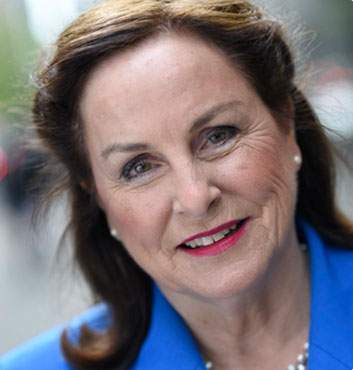You Deserve a Break! Suggestions for Daily Living
What about the mental health of the sober parent? Don’t they also suffer anxiety and depression, low self-esteem while trying to “control” the behavior of a child who is clearly out-of-control?
Drug addiction affects the whole family; it alters the family dynamic. It can deteriorate a person’s physical health, family finances, and psychological well-being and can result in divorce as they did in Charles Rubin’s memoir Don’t Let Your Kids Kill You!
Many parents suffer in silence for fear of being judged as “bad parents.” They are unprepared for the consequences of having a child succumb to the disease of addiction: the trials of trying to “fix” the problem, the resentment and anger at their afflicted child and possibly their spouse, not to mention the guilt and self- blame.
But isolation and trying to “fix” the problem of addiction don’t work. It goes against our parental instinct to think of ourselves first, but self-care is essential. After all, you’re entitled to love, attention, and respect. If you realize that you didn’t cause the addiction, you can’t cure it, and you can’t control it ( the 3 C’s of Al-Anon) then , you shouldn’t feel guilty about taking time off.
Here Are Some Suggestions to Avoid Burnout!
So, what can a parent do for their own overwhelming feelings? Seek professional counselling or support groups run by people who’ve been there. You will learn to change the patterns that aren’t working and that produce angst. Old patterns of resentment have the power to break the family apart.
Resources to Get You Started
- SAMSHA 1-800-662-HELP (4357) or TTY:1-800-487-4889 or use SAMHSA’s Behavioral Health Treatment Services Locator.
- American Academy of Addiction Psychiatry.
- American Society of Addiction Medicine (ASAM) for physicians who specialize in addiction.
- 12-step groups: Al-ANON, offers program of recovery for families and friends of alcoholics. NAR-ANON, for friends and family members of those who are affected by someone else’s addiction.
- For review of 12-Step programs, please see Fred Leamnson’s article “Your Complete Guide to Support for Parents of Addicted Loved One,” July 31,2019.
Newer models for family training include the CRAFT method (community reinforcement approach and family training), a behavior therapy approach in psychotherapy that will teach you positive communication and teach your child natural consequences of his actions that will lead him toward responsibility. CRAFT has you set goals and problem solve and includes drink/drug refusal training, relapse prevention. It has a high success rate.
PAL, (Parents of Addicted Loved Ones) provides “hope and support through addiction education.” According to author, licensed Substance Abuse counselor and life coach Michael Speakman, “the only people who can offer to help are the parents of the addicted love ones.” This program created by Speakman is based on lessons he learned in treatment centers at which he counselled.
If needs be, you may prefer having your own therapy sessions, at least in the beginning with a mental health professional. The point of breaking the silence is to learn new coping strategies, improve interaction within the family and break old patterns that weren’t working
Make It Fun!
Family therapy takes determination and integrity. It may feel exhausting at times so it’s important to take care of yourself and take time to recover. You will need private time to recharge your batteries. Some suggestions:
- Hobbies such as knitting.
- Relaxing pampering treatments at a spa.
- Sleep well.
- Exercise that’s gentle such as walking or swimming.
- Social events with friends: dining, playing cards.
- Mindful exercises such as yoga.
- Enjoy positive television, music, and reading. Avoid negative people.
Suggestions from Beyond Addiction : How Science and Kindness Help People Change by Foote, Wilkens, Wilkens and Kosanke and Addication Policy Forum
To summarize, do NOT put your child’s well-being ahead of your own. When you take care of yourself, you build strength to both tolerate what you can’t change and change what you can. As author David Sheff writes in his book Beautiful Boy: A Father’s Journey Through His Son’s Addiction, “ I finally chose life for myself. And when I did, everything in my world started to improve.”

Wesley Cullen Davidson
Wesley Cullen Davidson is an award-winning freelance writer and journalist specializing in parenting. Currently, she is targeting her writing about recovery to parents whose children have substance abuse disorders.
As always so well written